Supporting culturally accessible sexual and reproductive health for Tasmanian migrant and refugee communities
Family Planning Tasmania has been working to improve the sexual and reproductive health of migrant and refugee communities in Tasmania. Supporting Culturally Accessible Sexual and Reproductive Health of Tasmanian Migrant and Refugee Communities has been funded by Department of Communities and has developed a useful guide and referral document for support workers working with migrant and refugee clients in Tasmania.
Designed and developed to help increase support workers confidence, skills and understanding of cultural norms and sensitivities relating to sexual and reproductive health of migrants and refugees, Family Planning Tasmania has worked closely with Migrant Resource Centre North, Migrant Resource Centre Tasmania, Red Cross Bi-Cultural Health Program, Multicultural Council of Tasmania, Glenorchy City Council (Hear our Voices Project), Women’s Friendship Group.
Research shows that migrant and refugee populations in Australia have poorer sexual and reproductive health outcomes than Australian-born populations (Multicultural Women’s Health Australia: Sexual and Reproductive Health Data Report, 2021). These poorer health outcomes include higher prevalence of sexually transmitted infections (STI’s) despite lower rates of testing, and lower levels of knowledge around contraceptive methods (MWHA, 2021). Some of the barriers identified attributed to lower migrant and refugee sexual and reproductive health is lack of understanding of cultural norms and difficulties navigating the healthcare system (MWHA, 2021). This project has increased support workers understanding of cultural norms and sensitivities relating to sexual and reproductive health of migrant and refugee populations and produced a useful guide to increase sexual and reproductive health conversations and referrals.
The guide includes 5 useful tips to guide a successful chat, information for people to understand the importance of sexual and reproductive health and a comprehensive list of clinical and support referral organisations in Tasmania.
Having a sexual and reproductive health chat with a migrant or refugee client
What is sexual and reproductive health?
Sexual and reproductive health, or SRH, is a fundamental human right and is not just the absence of infection or illness in a person. It refers to complete physical, mental, and social well-being (1). SRH can cover fertility and births, family planning and contraception, as well as reproductive and sexual health and related infections. SRH can include medical care, education, and other support services.
Why is sexual and reproductive health important for migrant or refugee clients?
Migrant and refugee populations in Australia have poorer SRH outcomes than other populations. Statistics show migrant and refugee populations have;
– Higher rates of sexually transmitted infections (STI) despite lower testing rates (2)
– Lower knowledge of contraception options (3)
– Later access to antenatal (during pregnancy) care (3)
– Higher rates of unintended pregnancy (2)
Barriers to accessing SRH services and support for migrant and refugee populations may include;
– Lack of culturally appropriate support (3)
– Low Health Literacy (2)
– Language Constraints (2)
– Financial Concerns (2) or not knowing that some SRH services are free
– Confidentiality Concerns 2
– Medical care can be hard to access; many providers do not accept new clients; have out of pocket expenses; and long wait lists
Discussing SRH can help empower clients to increase their confidence and understanding. It also connects clients with relevant support and health services. Starting the conversation can mean clients access SRH care sooner and have increased likelihood of improved health outcomes.
What does sexual and reproductive health cover?
- Contraception options
- Pre-pregnancy, fertility and pregnancy options including termination of pregnancy
- Sexually transmitted infection (STI) testing and treatment
- Gynaecological (women’s) health
- Urological (men’s) health
- Cervical screening
- Breast health and breast screening
- Sexual and reproductive function
- Menstruation and menopause
- Pelvic floor health including incontinence
- Vaginal and vulval health including prolapse
- Growth and change, including puberty
- Respectful relationships including cultural customs, male/female interactions, addressing discomfort in conversations, and physical boundaries
- Sexuality, gender, and gender identity
- Protective behaviours & sexual safety
Guide to having a successful sexual and reproductive health chat
- Be culturally aware: Remember to be culturally sensitive through non-judgemental observation and awareness. Ask your client their preferences to determine who is an appropriate support worker for them and meet these preferences wherever possible. This can be quite personal. Your client may prefer a support worker from the same or similar cultural or language background, someone of a similar age or the same gender, or to have a translating and interpreting support service (TIS). Some people will not discuss their SRH with someone of another gender, and some may need to discuss with their spouse before making any decisions. Consider your clients safety when determining if they should be seen individually or with their partner when discussing their SRH.
- Build trust and rapport: Make sure there is enough time to comfortably talk, and use an appropriate, private and comfortable place to have the discussion. Providing a glass of water or hot drink can help your client feel more at ease. Use active and reflective listening, ensuring your body language, eye contact and interactions are culturally appropriate. Be considerate and respectful and give your client time to speak and be heard. Express empathy and remain calm, non-judgemental, supportive and inclusive.
- Ask permission: Always ask your client if it is OK for you to discuss their SRH with them. Explain that conversations are confidential and private. Reassure them of your understanding and awareness that this may be a sensitive topic for them. If your client is not comfortable having the discussion with you, try to understand why and see if there is anything that can be done to make the conversation possible. This might be offering to have a support person present, using TIS services, or, if necessary, the client may be referred to a SRH service for support.
- Avoid making assumptions: Be open and willing to learn about your client. Ask clear and simple questions to understand what the client knows about their SRH, support options and if they have any concerns. Be mindful to avoid bringing cultural bias into the conversation as this could influence your interactions and the outcomes of the discussion. Consider all aspects of SRH, not just the obvious. SRH is important for people at all ages and stages of life.
- Overcome language barriers: Use plain English, avoid using medical jargon or acronyms and check for your clients understanding. Explain that many SRH services can offer information in language and interpreters can be arranged. Translation and interpreting services (TIS National) can be an important option to consider avoiding any miscommunication or misinterpretation, particularly when needing to discuss medical content.
In summary, sexual, and reproductive health:
- Is an important aspect of health
- Is a fundamental human right
- Can be a challenging topic to discuss
- Can be sensitive and complex for some
Discussing sexual and reproductive health:
- Can improve health and wellbeing outcomes
- Doesn’t have to be embarrassing
- Can be simple and brief
- Doesn’t mean you have to be an expert
- Is to identify any need for support
- Is to connect to further support services
We would like to thank all the organisations that supported and helped guide our project.
Migrant Resource Centre North,
Migrant Resource Centre Tasmania,
Red Cross Bi-Cultural Health Program,
Multicultural Council of Tasmania,
Glenorchy City Council (Hear our Voices Project),
Women’s Friendship Group.
The guide is now available free for download and printing in the link below. Let us know what you think and if you have any feedback we would love to hear from you!
We're here for you at every stage of life
We have clinics in Burnie, Launceston, and Hobart. Interpreter services available.


